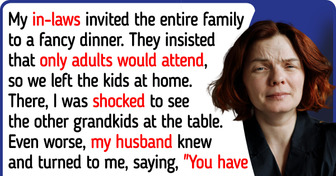I didn't know running water wasn't allowed. I never cared and actually took a lot of showers during storms. I have to be more careful ?
12 Things We Shouldn’t Do During a Storm
Peeking out of your window, using running water, or even touching concrete walls — there are so many ordinary things that we do at home during extreme weather, and we don’t even think that they could be dangerous to us. And even though your home is generally a safe place during these times, there are still safety rules that shouldn’t be ignored.
Bright Side wants our readers to be prepared for any situation. For this purpose, we have found out what the most common mistakes are that most people neglect while waiting for bad weather to pass. Make sure to remember them and stay safe!
1. Avoid using running water.
Taking a shower or a bath, washing the dishes, or just using running water for any purpose can be dangerous. First, it’s because the water pipes are made out of metal (usually steel or copper), which is known to be able to conduct electricity. Second, tap water, with its countless impurities, allows electricity to flow through it. So covering yourself with water puts you at risk of an electric current getting to you.
2. Do not touch concrete structures.
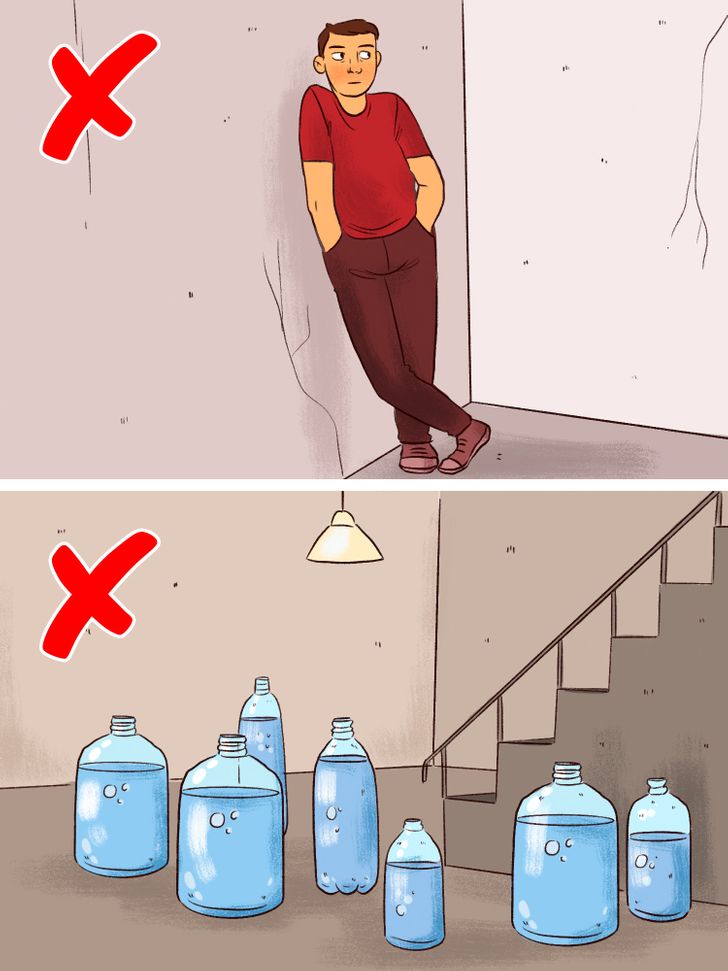
It’s better to avoid touching or leaning on concrete walls, or even lying on concrete floors. Metal bars in the walls and flooring, combined with concrete, can conduct electricity and put you in danger. Another thing you need to avoid is storing bottles of water on these floors. Plastic can absorb different odors and even the chemicals used to create the cement floor. This can make your water unsuitable for drinking. Instead, put your supply of water bottles on some wood planks or use cardboard.
3. Try not to light candles.
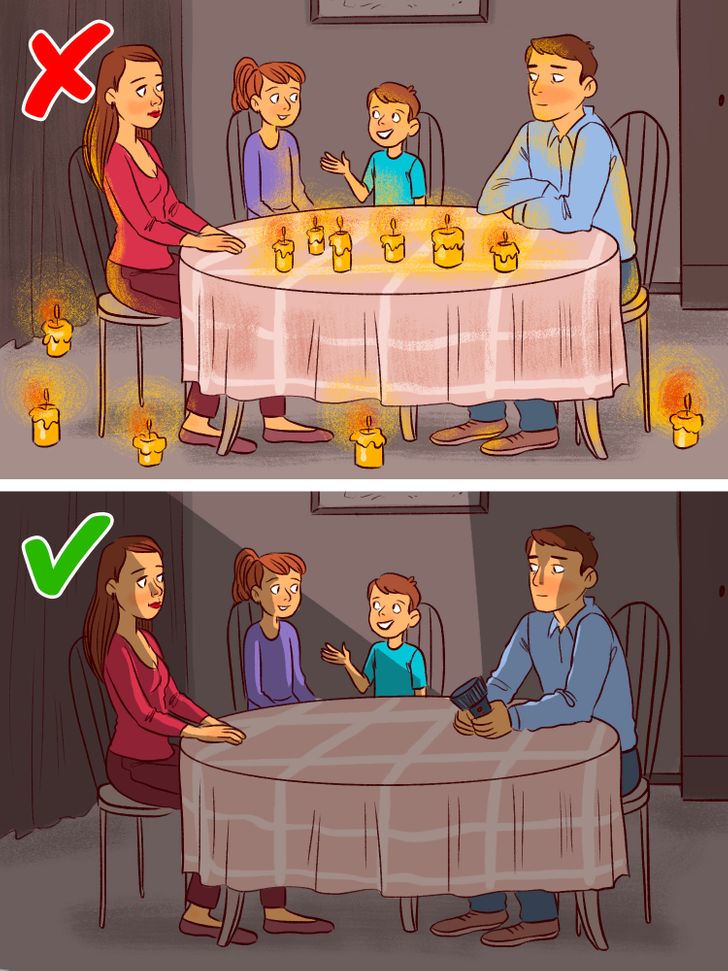
The problem with candles is that they can also start a fire. And during a severe storm, it might not be possible to contact emergency services. Even if you are able to contact them, the weather might make it impossible for them to reach your house in time. To avoid possible dangers, you can use flashlights instead of candles. They produce even more light and are way safer.
4. Avoid hiding in your basement.
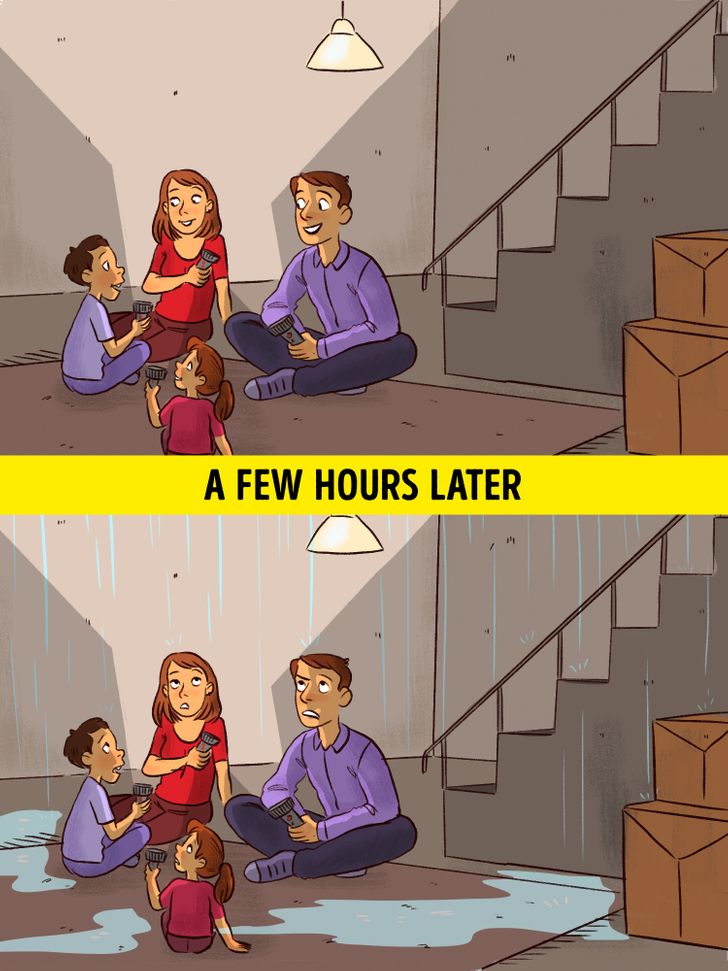
The basement is probably one of the most popular places to hide during hurricanes or floods, but it turns out that it might not be that safe. If your basement is underground and has no windows or doors, it can get filled with water, so you need to avoid hiding there. Otherwise, you risk getting trapped there with no way escape (if the level of water gets too high).
5. Don’t run a generator indoors.
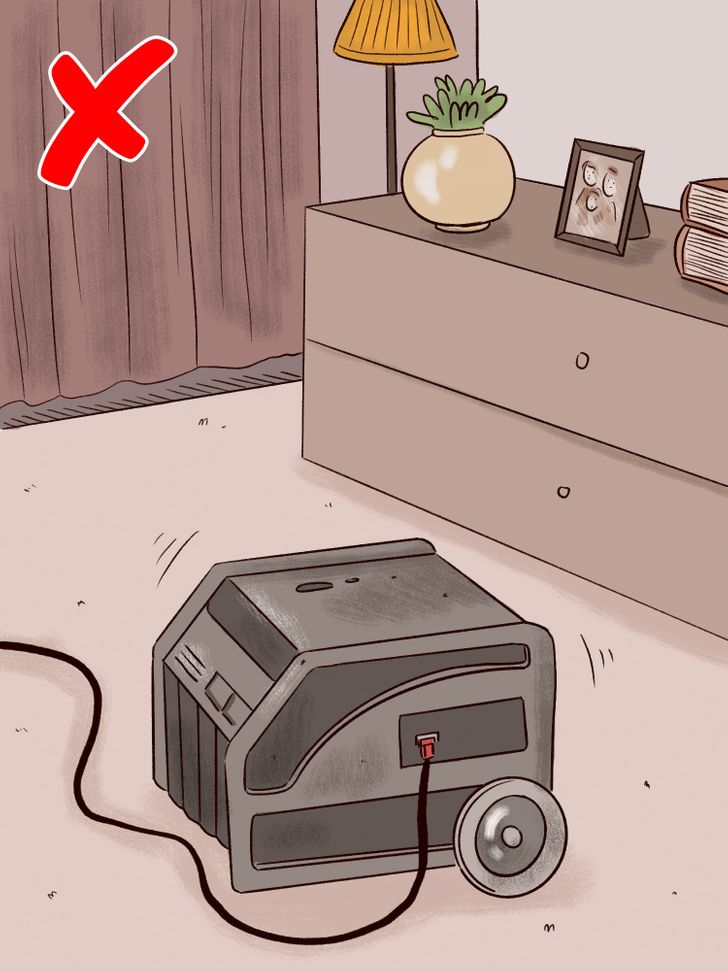
A portable generator is able to keep your electronics, like refrigerators or air conditioners, running, but it’s better to not use it at all during the storm. The reason is that this machine emits carbon monoxide that can poison people and cause headaches, dizziness, weakness, and vomiting. In general, avoid using it in closed areas like the inside of your home, your garage, or your basement.
6. Avoid standing near windows.
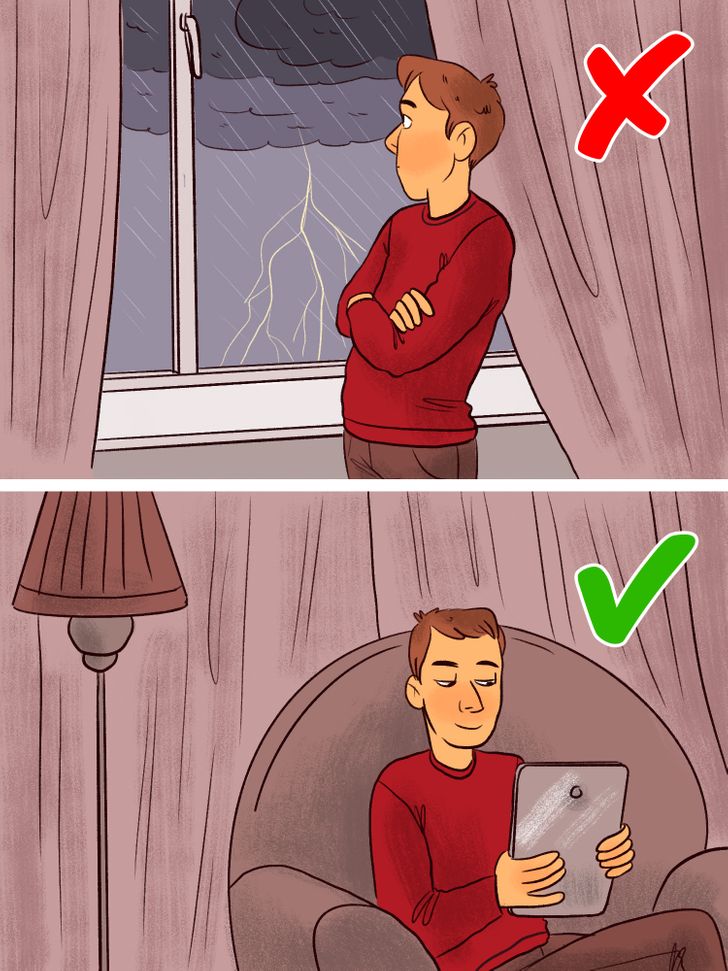
While it may seem interesting or even romantic to watch lighting from your window, it’s still unsafe. If the storm is too severe, the wind can blow objects and they can fly and break the window, putting you in danger. Another reason, although it’s rather rare, is that in older homes lightning can come in through cracks in the sides of windows.
7. And don’t open them either.
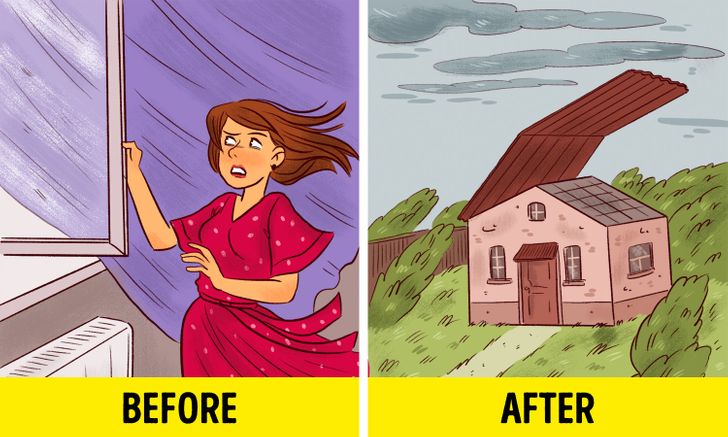
Opening a window can cause severe damage to your home. Moisture can be brought in and cause problems like mold later on. And there is something worse that can happen — air can enter with a huge force and swiftly travel to the top of the house. If the wind power is intense enough, it can even blow the roof of your house off!
8. Don’t keep your laptop charger and other electronics plugged in.
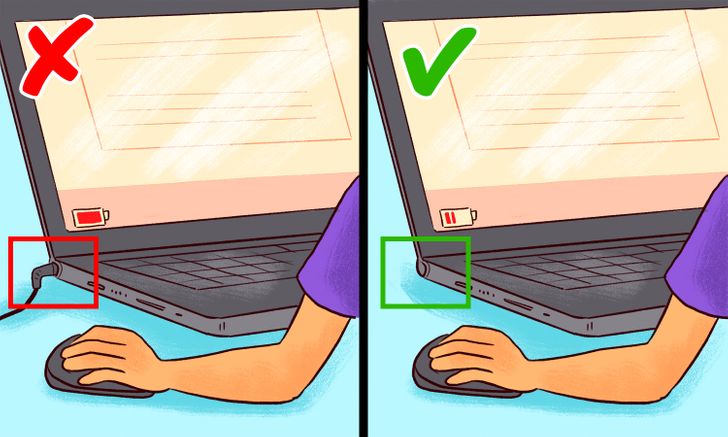
If you need to get some urgent job done, make sure your laptop charger is unplugged. An electric current can overload to the power cord and not only destroy your device, but also hurt you. Don’t forget to save your files before it dies! Moreover, try to avoid being close to windows and doors while working on your laptop to make sure you won’t receive any static electricity damage or lightning strikes.
9. It’s better to not touch anything metal or electrical.
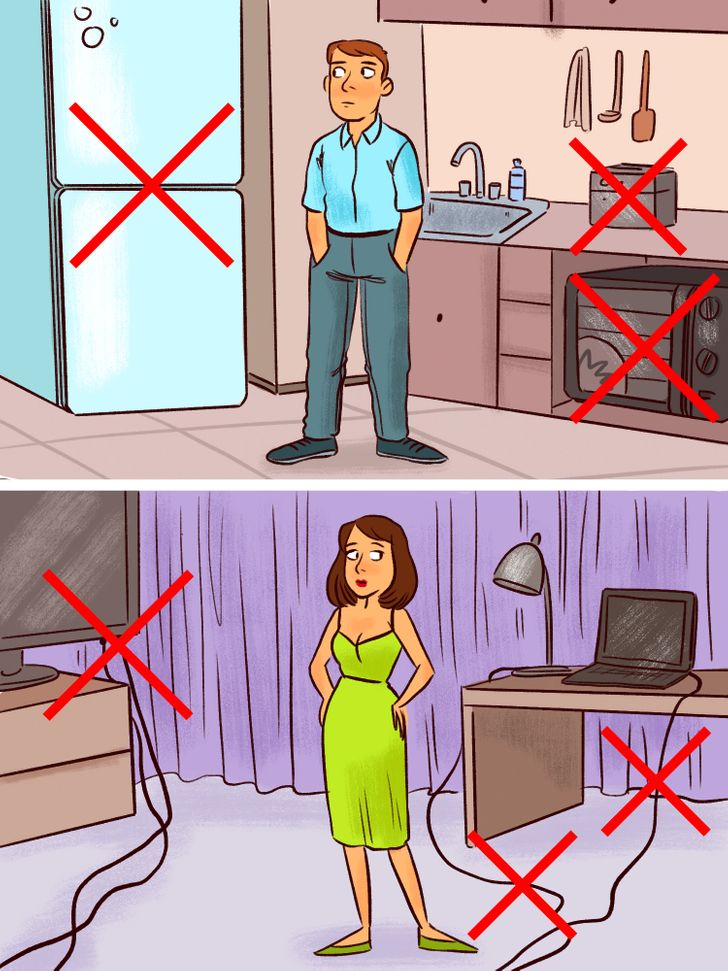
Even though it’s relatively safe to stay in the house during a storm, some of the objects in your home can conduct electricity and are dangerous to touch. For example, things like corded phones, wires, TVs or computer cables, plumbing, and metal doors should be avoided until the weather gets better. You can just unplug them beforehand to guarantee that nothing can bring any harm to you.
10. Never get locked in.
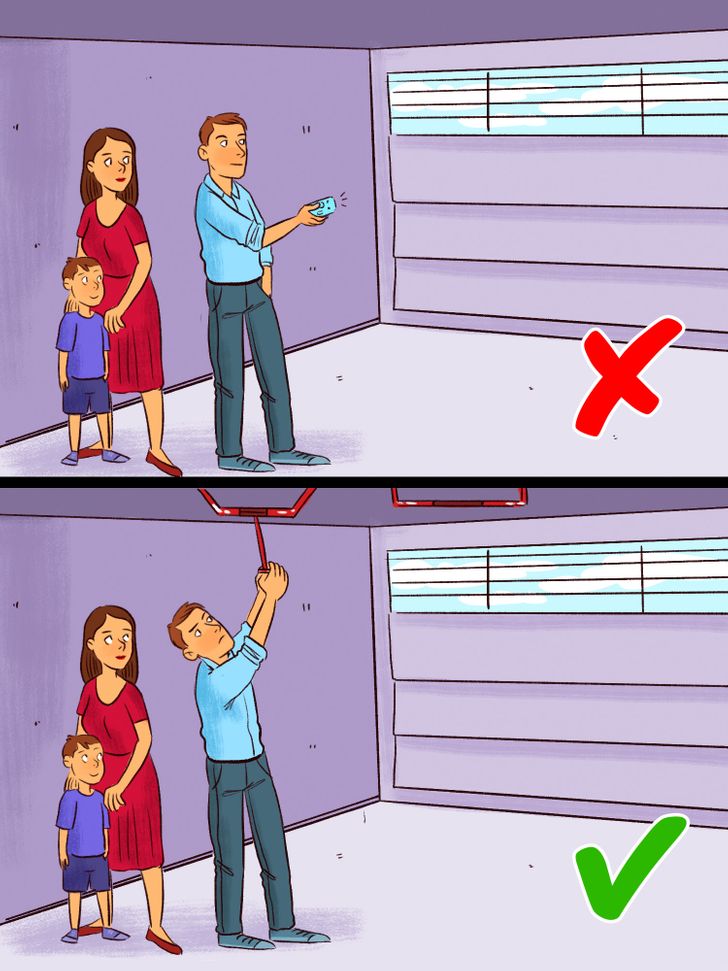
When the power goes off, the automatic locks of many garage doors lock up. Make sure that you and your family are well-informed about the manual cord that releases the door. This will allow you to easily open the door in case of an emergency and leave the premise safely.
11. Don’t turn your radio or TV off.
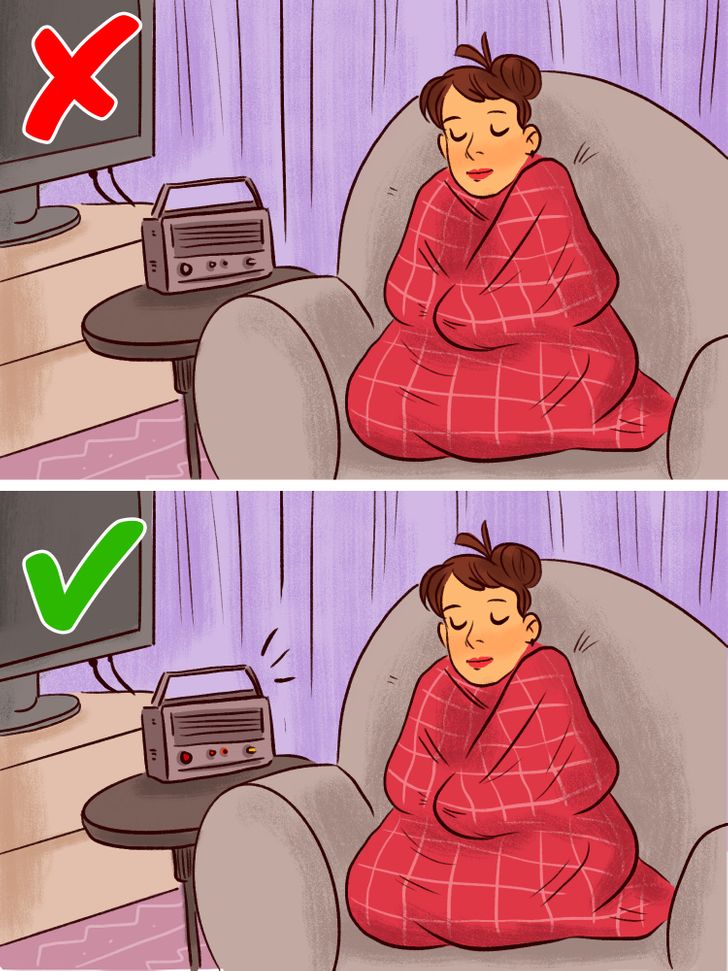
If a severe storm happens, you need to make sure that you don’t miss out on any information and updates that are being broadcast by your local authorities. Television and radio allow you to stay informed and take action to avoid danger. Remember, this knowledge might save your life!
12. If caught outside, avoid hilltops and open areas.
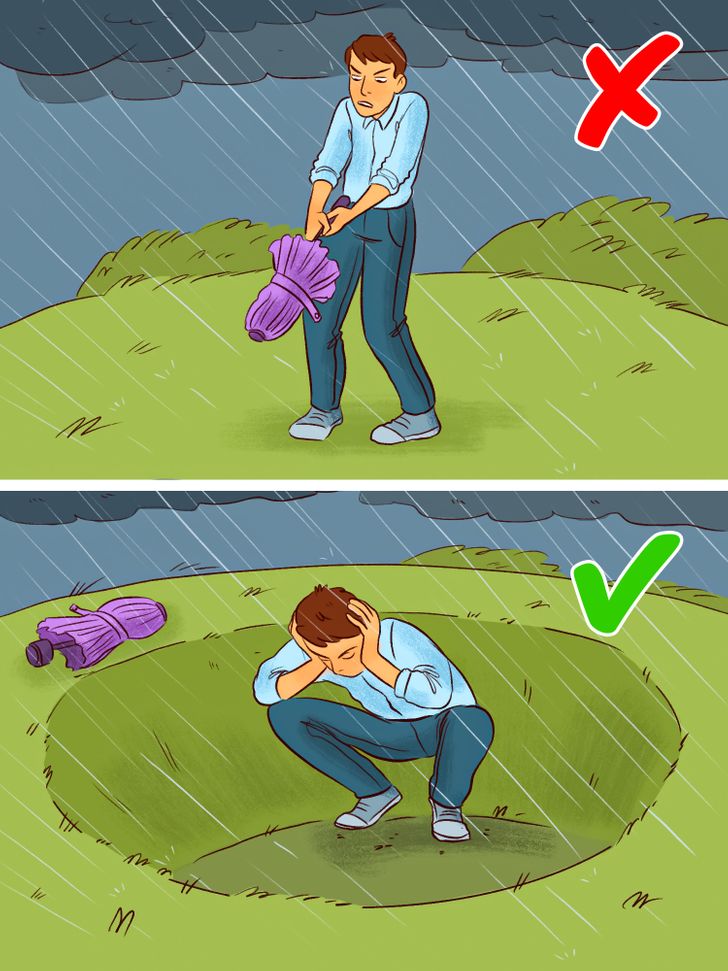
If you happen to be outside and can’t find shelter, then taking immediate action is crucial. First, do not hold onto any metal objects like umbrellas or bicycles, since they can attract a lightning strike. Second, do not stay on hilltops or in open areas — lightning seeks the highest ground. Try to find a pit or any other low place in the ground and hide there.
Do you have more personal tips on staying safe during severe weather? Let’s share them in the comments!
Comments
I assume it's safe because I have always been using my electronics during the storm
Related Reads
My Parents Walked Away While My Toddler Was in the Pool—Their Explanation Left Me Speechless
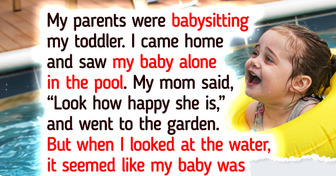
16 Kind Stories That Are Like a Band-Aid to the Soul
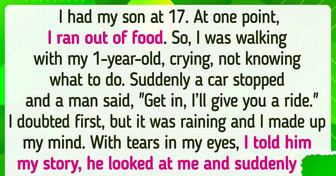
13 Workplace Dramas That Outdo Any Soap Opera
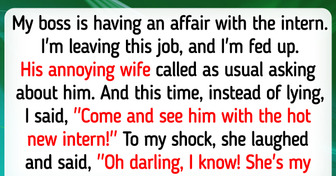
17 Friendships That Didn’t Stand the Test of Life
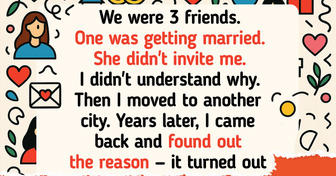
17 Families Whose Mornings Start With a Good Dose of Humor

David Beckham’s Son, Cruz, Debuts New Girlfriend Whose Resemblance to His Mom Causes a Stir

I Threw My Stepmom Out of My Dad’s House — It’s Not a Free Hotel
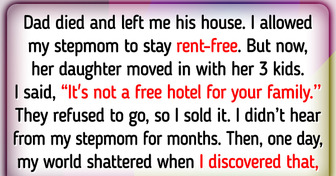
My Ex-Husband Spent the Money Saved for Our Son on His Stepdaughter
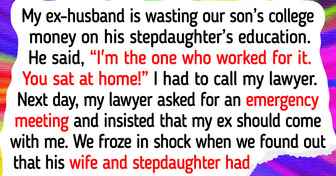
15 Inimitable Children That Speak Better Than Some Adults

9 Psychological Tricks You Can Start Using Right Now

20 People Who Were Lucky Enough to Meet Their Perfect Partner

My In-Laws Invited the Whole Family to a Gathering — But Left My Children Out
